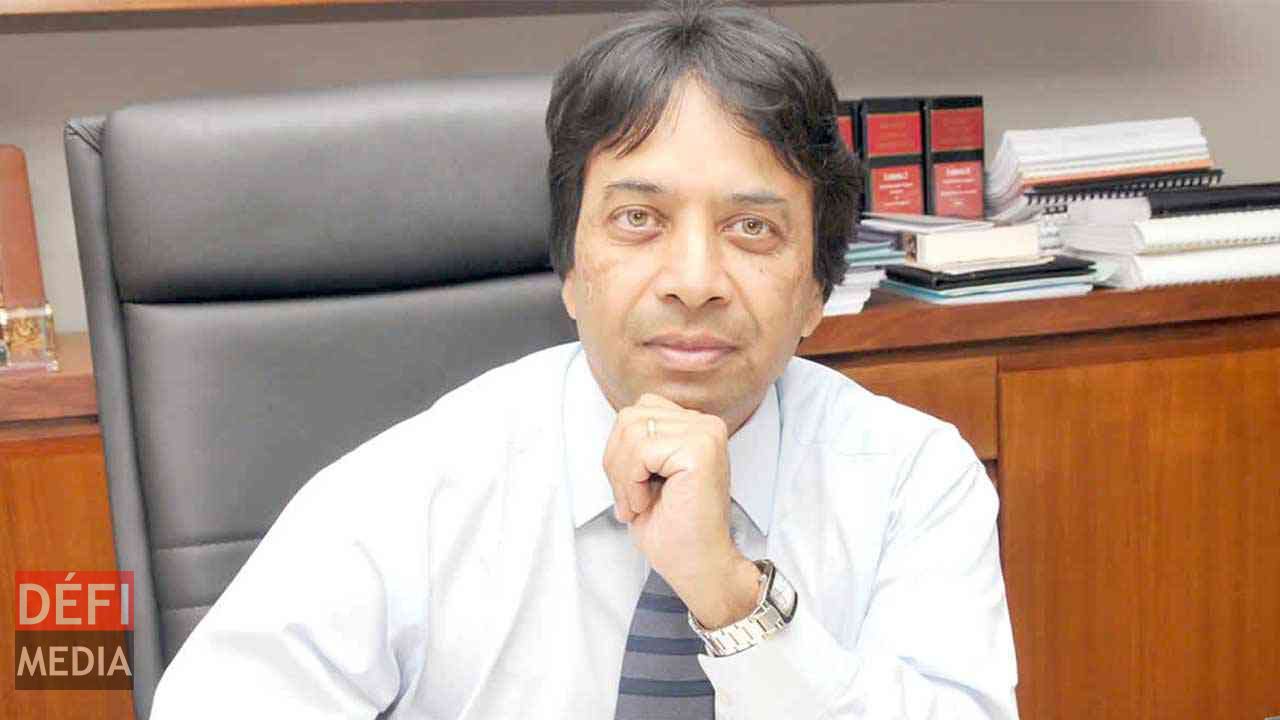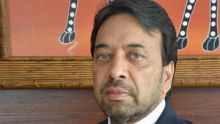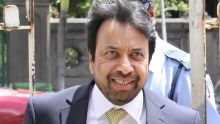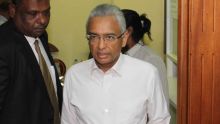
The Office of the Director of Public Prosections has issued a communiqué on Wednesday June 8 regarding the positive Supreme Court ruling on the appeal lodged by Finance Minister Pravind Jugnauth against his 12 months’ imprisonment verdict at the Intermediate Court. Following his acquittal, the DPP now wants to take matters before the Judicial Committee of the Privy Council.Because the implications of the ruling given by the appeal bench in favour of the Finance Minister, “raises points of law of great general public importance”, the DPP will appeal against the decision. The suspense was high as to what course of action the DPP would take regarding the acquittal of Pravind Jugnauth in a case of conflict of interest. Through a communiqué published by his office on Wednesday June 3, DPP Satyajit Boolell said that he is now applying for a leave from the Supreme Court to appeal against the previous decision at the Judicial Review Committee of the Privy Council.
Pravind Jugnauth was being sued regarding the purchase of the MedPoint clinic of which his sister Shalini was a shareholder by the government for Rs 144 million in 2010. He was Finance Minister at that time and signed the cheque. He was found guilty of conflict of interest under the Prevention of Corruption Act and subsequently sentenced to 12 months’ imprisonment by the Intermediate Court. Pravind Jugnauth appealed against the sentence and the Supreme Court cleared him of all charges in May 2016.
To justify his appeal at the Privy Council, the DPP stated that “Supreme Court observed in its judgement that it was the first occasion on which the offence of Conflict of Interests, under section 13(2) of the Prevention of Corruption Act (POCA), has come before it for determination and this case raises fundamental legal issues relating to the interpretation of that offence.”
According to the DPP, the court ruling gives rise to important questions as regards the determination of guilt under section 13(2) of the POCA. Some questions are:
(a) the requisite degree of knowledge and criminal intent of a public official to establish an offence of Conflict of Interests, and whether good faith can be invoked as a defence;
(b) the meaning of the term “personal interest” and whether it excludes the shareholding of the relative of a public official in a company;
(c) the nature of participation in proceedings prohibited under that provision and whether a public official is precluded from taking any step in the execution of a contract which has been awarded by a public body to a company in which a relative of that public official has shares.
“The above legal issues raises points of law of great general public importance, the final resolution of which is in the interests of the public and of the administration of justice in Mauritius,” said the DPP. Moreover, the DPP has taken note that there are a number of cases either awaiting decision as to charge or awaiting trial, the final outcome of which will depend on the decisions of law made in this case.
Penny Hack: “The DPP can directly appeal to the Privy Council”
Lawyer Penny Hack explains that the DPP has the full right to make an appeal in any case as it is an important matter. “Usually, the DPP does not decide on his own. There are several officers who provide their opinions and make recommendations after considering various legal points. In this case, the public interest, the social aspect and impact on justice has been considered.” In this case, several points need to be clarified according to the lawyer. “One of the main issues is what is meant by personal interest. It is important to know how law defines personal interest so as to correctly judge. The second point is criminal intent. For the administration of justice, it is crucial to shed light on what is a criminal intent. The prosecution has stressed on this point and now the DPP has to prove at what level there has been criminal intent. It is quite difficult for the DPP to prove this.” The lawyer avers that now we need to wait for the decision of the Supreme Court. “Now the Supreme will provide its decision whether it gives the permission for appeal or not. In case, it does not, the DPP can directly make an appeal to the Privy Council.”Raouf Gulbul: “Pravind Jugnauth is still innocent”
Lawyer Raouf Gulbul states that it is the right of the DPP to make an appeal. “This decision clearly shows that the DPP acts independently. There was a misconception that there will be a kind of pressure or influence on the DPP. Hence with this decision, we can say that our institutions are independent. The appeal itself is based on fundamental rights. All the arguments have legal interpretation. There are no political implications in the appeal. It is absolutely on the interpretation of the law. We need to wait to see the arguments put forward as an appeal at the Privy Council is based on rights only and not facts.” He recalls that Pravind Jugnauth is innocent and the appeal is just a question of right in regards to law. “There has been no conviction yet, hence Pravind Jugnauth is still innocent. He can undoubtedly continue to exercise his duty as Minister. The appeal of the DDP is by no means a handicap.”Yousuf Mohamed: “Such cases take time”
Senior Counsel Yousuf Mohamed is completely in favour of the DPP’s appeal at the Privy Council. He believes that this will enrich the jurisprudence. “It will up to the Privy Council to decide whether the Intermediate Court or the Supreme Court was right. Privy Council will debate more on the element of rights.” He reveals that the final decision rests upon the Privy Council. “Such cases take time. A special request can be made for the hearing to be made in the shortest delay as Pravind Jugnauth has a ministerial post. It will obviously be an additional stress for the Jugnauth family.”
Notre service WhatsApp. Vous êtes témoins d`un événement d`actualité ou d`une scène insolite? Envoyez-nous vos photos ou vidéos sur le 5 259 82 00 !





















![[Document] Affaire L’Amicale : le Privy Council rejette l’appel de trois condamnés](https://defimedia.info/sites/default/files/styles/medium/public/amicale_ok.jpg?itok=aVDgyaSu)











